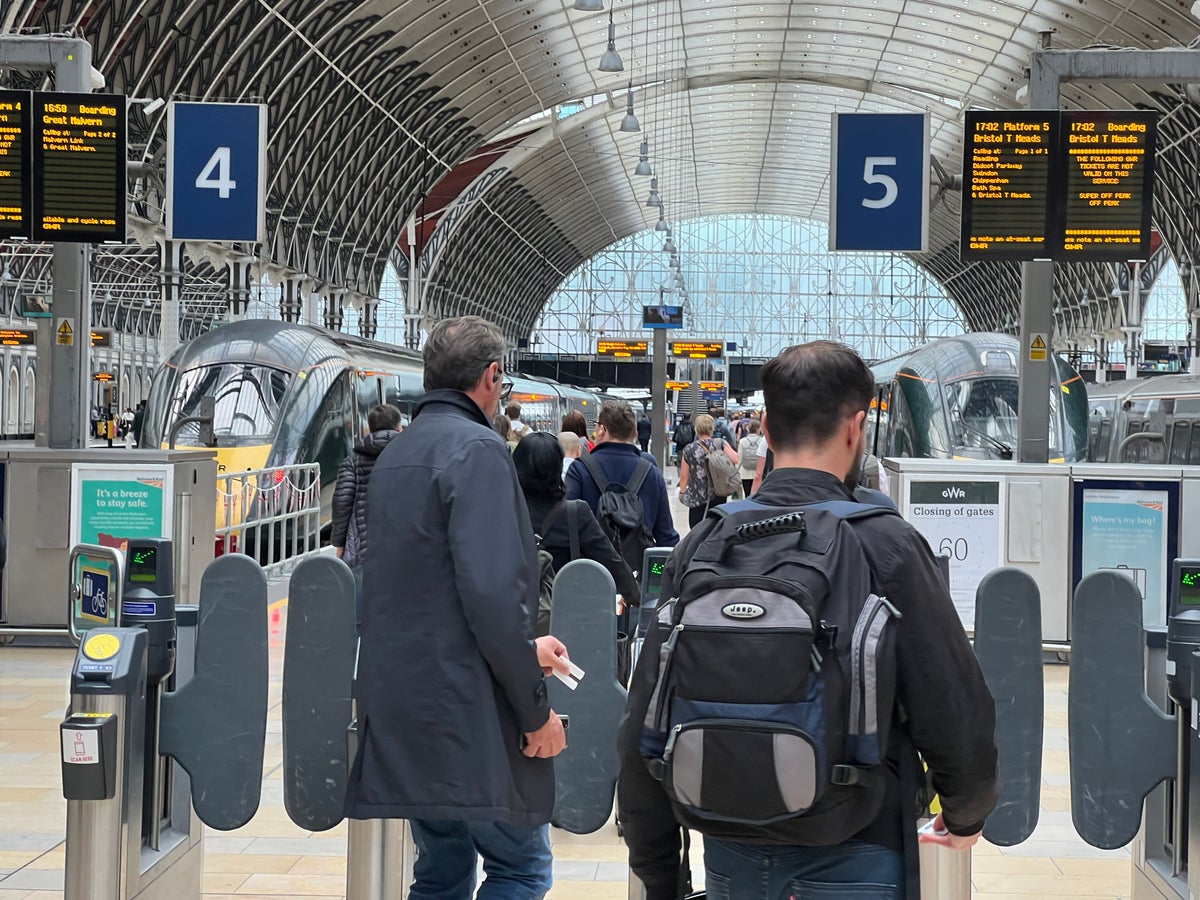
Tens of thousands of railway workers are to stage three days of national strikes later this month, in what their union says will be the biggest walkout since 1989.
Members of the RMT at Network Rail and across 13 train operators will take action on 21, 23 and 25 June. The first date coincides with a separate 24-hour RMT strike on London Underground.
Together, the walkouts threaten travel chaos for commuters, as well as for those attending concerts, Test match cricket and the Glastonbury festival.
Union members voted overwhelmingly for action last month amid growing dissatisfaction over pay and job losses. The RMT said rail staff who had worked through the pandemic were facing pay freezes as well as hundreds of job cuts.
RMT general secretary Mick Lynch said: “Railway workers have been treated appallingly, and despite our best efforts in negotiations, the rail industry, with the support of the government, has failed to take their concerns seriously.
“We have a cost of living crisis, and it is unacceptable for railway workers to either lose their jobs or face another year of a pay freeze when inflation is at 11.1 per cent and rising.
“Our union will now embark on a sustained campaign of industrial action which will shut down the railway system. Rail companies are making at least £500m a year in profits, whilst fat cat rail bosses have been paid millions during the Covid-19 pandemic.”
The union said more than 50,000 railway workers would be involved in the action on 21 June, and that the other dates would disrupt the national railway network for the entire week. According to the RMT, it will be “the biggest dispute on the network since 1989”.
The transport secretary, Grant Shapps, said: “It is incredibly disappointing that the RMT have decided to take action that could drive passengers away from the rail network for good.
“The pandemic has changed travel habits, with 25 per cent fewer ticket sales, and the taxpayer stepping in to keep the railways running at a cost of £16bn, equivalent to £600 per household. We must act now to put the industry on a sustainable footing.
“We are working with the industry to reduce disruption caused by strike action, but unions are jumping the gun by announcing this when talks have only just begun. We once again want to urge the unions to come to talks with the rail industry so we can work together to build a better, more modern, passenger-focused railway.”
Passenger numbers remain stubbornly below 80 per cent of pre-pandemic levels, and revenue – previously underpinned by expensive season tickets in southeast England – is believed to be lower still.
Train operators have called the industrial action “disappointing” and are urging the RMT union “to continue discussions and call off strike action”.
The chair of the Rail Delivery Group, Steve Montgomery, said: “We urge the RMT’s leadership to call off needless and damaging strikes and continue to work with us to ensure a fair deal for our people and for the taxpayer while securing the long-term future of the railways.
“No one wins in the event of a strike. Staff lose pay, the industry loses vital revenue, making it harder to afford pay increases, and passengers and businesses are disrupted.
“While we will keep as many services running as possible, sadly if this action goes ahead, significant disruption will be inevitable.”







